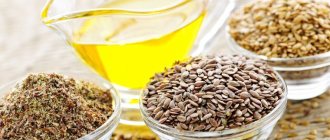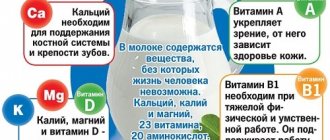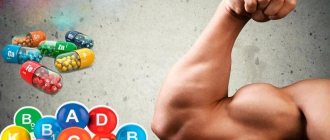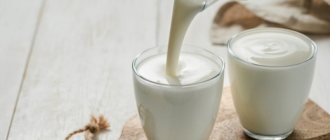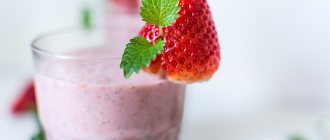From the editor : you are on the “Under-Expert Opinion” blog. First, this is Grandstand's medical territory because it is taught by a sports medicine and rehabilitation resident. And secondly, this is one of the coolest Tribune blogs. The author writes often and always to the point. Don't skimp on the upvotes and comment.
Yes, a serious misconception that was born from three myths.
Myth No. 1
Based on pseudo-scientific articles: supposedly, if you drink during training, it overloads the cardiovascular system and even provokes its diseases.
Myth No. 2
A feeling of discomfort and gurgling in the stomach is a sign that something is going wrong in the stomach.
Myth No. 3
And, of course, the example of professional athletes who (allegedly) do not drink water, but only rinse their mouths and spit it out.
What is it really like?
Let's start with the basics. Answer the question: why do we drink? First of all, to replenish the fluid lost by the body, but how much fluid does the body need and when? The minimum fluid losses have long been calculated:
As you can read in the same study, all body fluids are not only water, but also what is dissolved in it. In relation to blood plasma, sweat contains fewer dissolved substances, which means that during exercise, fluid is primarily lost and, to a lesser extent, substances dissolved in it.
That is, the blood plasma solution becomes more concentrated and in order to dilute it, you need to drink water.
Why is water balance important?
Water is an essential nutrient for every person. It performs important functions in the body:
- part of cells and intercellular substance;
- dissolves most mineral salts and organic compounds;
- participates in most biochemical reactions;
- is part of all body fluids;
- is part of blood and sweat, which ensure redistribution of heat;
- ensures the removal of metabolic end products from the body.
Photo: istockphoto.com
Lack of water can negatively affect your well-being. During exercise, fluid plays a vital role: maintaining blood volume, regulating body temperature and helping muscles contract.
Ksenia:
There is no need to torment yourself with thirst during physical activity. Remember a simple rule: if you stay hydrated, you will train more effectively.
What happens if you don't do this?
Nothing good. Dehydration can be divided into three stages, based on the amount of fluid lost:
You can reach the last two stages, perhaps, if you don’t drink during the whole marathon; simple training is more about losing 1.5-2 liters of fluid (1-2% of the total body weight) due to increased breathing and sweating (we’re talking We are talking about losses of 1.5-2 liters during training).
Water and meals
It is also important to touch on the issue of drinking water during meals.
| Doctors unequivocally say that there is no reason to fear that water dilutes gastric juice and thereby interferes with digestion. |
Over the years, enough observations have been accumulated of patients in the hospital, whose acidity in the stomach was measured on an empty stomach, after eating or after drinking water. They all indicate that acidity remains virtually unchanged, even when patients drink water after a daily fast .
Water can even aid digestion, as it helps break down food and is essential for proper absorption . Some even claim that it can prevent overeating by forcing people to stop and check their satiety levels during meals. However, some people may feel uncomfortable drinking water with meals, so this, as with other matters, varies from person to person.
| During our programs, we sometimes recommend separating food and water intake. But not because it will dilute gastric juice or stretch the stomach, but because people often confuse the sensations of hunger and thirst. |
At first, it is important to teach people to separate these two feelings in order to later be more sensitive to such basic body signals as hunger, thirst, satiety, fullness and appetite . This practical task was born from experience and has been proving its effectiveness for several years.
Why does this volume need to be replenished during sports?
As we have already found out above, the blood loses its liquid part, but it contains not only dissolved substances, but also formed elements (red blood cells, leukocytes, etc.). Therefore, when fluid is lost, it literally becomes thicker, which is why the heart has to work harder (throw out more blood and contract more often) to deliver oxygen and nutrients to the tissues. And I remind you that at this time you are training - which also requires more intense work of the heart.
Moreover, the exchange of substances between blood and tissues occurs also due to the difference in fluid concentrations in them. And if the blood takes it from the tissues, then the nutrients will be drawn for the water (since the body cannot take only water or only the substances in it, these are integral parts of one process) - that is, the hunger of the tissues will only intensify during training.
It turns out that if you drink during training, then, on the contrary, you help the body by maintaining a constant blood composition. More fluid blood is easier for the heart to circulate throughout the body. This is how the first myth collapses - water helps to dilute the blood, which reduces the load on the heart.
What about the feeling of discomfort? It occurs because even water needs time to be absorbed. On average, the liquid remains in the stomach for up to 10 minutes. This is what causes the feeling of discomfort - a large volume of fluid in the stomach when, for example, running, also moves inside the stomach, which provokes not the most pleasant sensations.
But there is nothing dangerous about it. The walls of the stomach are strong enough to withstand pressure, and in case of overdistension of the stomach that is dangerous for the body (if it is so full), nature has invented a gag reflex.
Athletes solve this problem this way - they split up their fluid intake into several stages: on average 200-300 ml at a time (that is, ⅕ of the average loss per workout (1-2% of body weight); such a volume does not create significant discomfort, but at the same time, it replenishes some of the lost fluid. And rinsing the mouth with water dulls the feeling of thirst and dry mouth, that is, athletes still swallow part of the water they drink, and rinse the rest with the purpose described above.
Should you drink water while working out at the gym?
Water makes up 55 to 70% of the total body weight. The fluid ratio depends on the person’s build. Thus, muscle tissue accounts for 75% of water, and fat tissue accounts for 10%. The loss of even 1% of fluid leads to a malfunction of the body, loss of strength and deterioration of the general condition, if the lack of more than 20% is fatal.
Should you drink water while working out at the gym?
During training in the gym or any other activity, blood circulation increases, the speed of lymph movement accelerates, tissues and organs begin to heat up, and the body releases heat. To return normal temperature, the body starts the process of active sweating.
Thus, as a result of high-intensity exercise, a person loses up to 2 liters of fluid, which is approximately 2%. At the initial stage, such losses will seem insignificant, but with systematic training without replenishing the required amount of water, symptoms of dehydration will occur.
Therefore, most trainers and doctors have the same opinion: during intense exercise you need to drink enough fluid.
Three studies that will help stop aging
Such a simple element as water has always been considered vital and necessary.
But at the same time, the number of myths about water, scientific facts and opinions that are imposed every day and then refuted, encourages us to look for answers to our questions. To help you, my team and I have prepared a webinar and a gift: 3 unique materials based on the experience of our experts on prolonging youth with the help of water. After completing our free webinar you will learn:
Artyom Khachatryan
practicing physician-nutritionist, naturopath
Immediately after registration you will receive a selection of studies:
Aging: you can't stop it, you can't accept it
What conclusions did 21st century scientists come to when studying water and its ability to prolong youth?
In fact, we don't know anything about water.
Important information for prolonging youth that we could have been told back in school
Hydrogen water is the most powerful natural remedy for prolonging youth
Why hydrogen-enriched water is considered the most effective, safe and affordable way to prolong youth
Find out how water can take care of your health, youth and beauty at a free webinar by nutritionist Artyom Khachatryan!
Water plays an important role in the training process and subsequent recovery, so you need to know how and why to drink water during training:
- Anabolism slows down . Muscles lose a huge amount of water, as it is redistributed to supply other organs. Muscle metabolism is inhibited, so their growth stagnates.
- Water maintains optimal body temperature . During training, the work of all body systems accelerates, it begins to heat up, so that complete overheating does not occur, water is needed.
- Timely intake of fluid will facilitate the functioning of organs . Dehydration turns the blood into a viscous substance, making it difficult to filter and move throughout the body. The load on the kidneys, liver and heart increases.
- Water forms the basis of synovial fluid, which coats the joints and protects from damage . Therefore, drinking water during a high-intensity workout will prevent pain in your knees and ankles.
- Almost all people who want to lose weight think about exercises for intensive burning of fat tissue, but few people realize how important drinking water during the training process is for proper weight loss . The fact is that when the body is dehydrated by only 1%, fat begins to be burned 2% slower, so you need to compensate for the lost fluid in a timely manner.
Do I need to drink water while working out in the gym?
The amount of water consumed is calculated based on the intensity of physical activity, the person’s weight and the climatic features of the area. But to maintain optimal water balance, there are several general rules governing how to properly drink water during training.
- It will be better if the liquid temperature is close to room temperature. Too hot or ice-cold water disrupts the heat exchange process, which puts additional stress on the heart and also negatively affects the functioning of the gastrointestinal tract.
- It is recommended to take several small sips every 15 minutes.
- During an hour-long workout, the volume of liquid should not exceed 0.7 liters.
How to Guaranteed Lose Weight with Water: 3 Simple Habits
There are almost no women in the world who have never been on a diet. Sooner or later, everyone faces the desire to lose a couple of kilograms.
In order for the treasured number to appear on the scales sooner, introduce 3 healthy and super simple habits into your life: we have prepared a document with experts where we describe them in detail.
Artyom Khachataryan
Practitioner, nutritionist, naturopath
75% of our course participants who follow these habits have significantly reduced their weight!
You can download the document for free:
In addition to drinking water during exercise, you need to drink 250-400 ml an hour before exercise, as well as about 500 ml in the final.
How then should you drink correctly?
If we are talking about football players, then FIFA recommendations on nutrition and rehydration say: it is better to drink in the second half of the match, this will help you endure physical activity more easily and maintain clarity of thought.
As for other sports and ordinary people, it’s more complicated - depending on the duration of the workout and your weight, fluid loss can vary greatly. On average, this is 1.5 - 2 liters per workout (1-2% of total body weight) (standard one-hour session). The longer and more intense the workout, the more.
Focus on the feeling of thirst; you shouldn’t forcefully pour water into yourself either - this is precisely what provokes the mentioned feeling of discomfort, but in no case should you endure it.
Take a liter (or larger) bottle with you and share it throughout your workout. When thirst appears, drink 200-300 ml and rinse your mouth with this volume. A cooler helps in the gym - a glass of water after an intense exercise will help you endure the workout easier without getting hung up on the feeling of thirst.
How much water to drink before, during and after exercise
Water consumption diagram from the American College of Sports Medicine:
| Before playing sports | While playing sports | After playing sports |
| Drink 0.5 liters of water within four hours. 0.2-0.3 liters of water 10-15 minutes before the start of class. | 0.1-0.2 liters of water every 20 minutes during an hour of intense exercise. 0.1-0.2 liters of a special sports drink every 15 minutes during high-intensity exercise for more than an hour. Do not drink more than a liter per hour during training. | It is necessary to compensate for lost fluid within two hours after physical activity. For every half a kilogram of weight lost through sweat, you need to drink 0.5 liters of water. |
Hydration tips from The American Council on Exercise:
- A couple of hours before class, drink 0.5 liters of water.
- Drink 0.2 liters of liquid in 20-30 minutes.
- During the process, drink 0.2 liters of water every 10-20 minutes.
- At the end of the workout, you need to replenish 0.2 liters of fluid.
- Drink 0.4-0.6 liters of water for every half kilogram of weight burned.
Tips from the National Academy of Sports Medicine:
- A couple of hours before class, drink 0.6 liters of liquid.
- During the process, drink up to 0.3 liters of water every 20 minutes.
- After exercise, replace 0.5 liters per half kilogram of weight lost through sweat.
This is interesting!
“What types of water ionizers are there?” Read more
Experienced trainers advise how to properly drink water during training.
- Record your weight before and after class.
- Evaluate the difference in weight. 90% is fluid loss.
- Drink an amount of water equal to half the weight lost. But not immediately, but over the next 2 hours.
If during weighing you find that you have lost 1 kg of weight, then drink 0.25 liters of water within 20 minutes after exercise. Then another 0.25 l for 2 hours.
How much water to drink before, during and after exercise
Despite the general recommendations on how to drink water during training, there are still exceptions when an athlete is not recommended to drink. For example, during a light morning jog lasting up to one hour. With a light load, the body temperature remains in a comfortable state, so profuse sweating does not occur; it is enough to drink a little water before the run and 20 minutes after.
It is worth taking into account that this does not apply to professional marathon runners. During a long race, an athlete loses a lot of fluid, so it is necessary to drink often and in small sips.
People involved in professional wrestling do not drink water during competitions, but only slightly moisten their mouths. It is believed that fluid intake reduces endurance. Yoga teachers also advise against drinking water during practice, as it can cause discomfort in inversions and twists.
What are the consequences of improper or insufficient water consumption?
A person who exercises must understand that his body must have enough water both during exercise and before and after. This water should compensate for fluid losses that occur during intense physical activity. The more water you lose, the worse your training performance. This is especially important during prolonged intense physical activity.
The water consumed by athletes must have a good mineral composition to compensate the body for the loss of calcium, potassium, magnesium and sodium salts.
Content
- 1 Water in the human body 1.1 Maintaining water balance in athletes
- 1.2 Optimal water temperature
- 5.1 Temperature control
- 6.1 Water and kidney stones
What kind of water is best to drink?
Carbonated water is less easily absorbed by the body than regular water and causes irritation to internal organs. It is better to drink plain clean water. To make the drink more refreshing, add lemon or mint. If you choose water in a store, we advise you to pay attention to still mineral water with a high content of magnesium and potassium - these microelements will help your body. Many runners prefer this option to expensive isotonic drinks.
Scientific approach: why drink water with lemon in the morning?
Healthy drinks for the hot summer: we prepare them for ourselves
Functions of water in the body[edit | edit code]
The fluids that make up our body are a powerful, deep river running through arteries, veins and capillaries, carrying various nutrients to the cells and removing waste products from the body. These fluids fill virtually all the space in the cells and between the cells. Water molecules not only fill space, but also help form the structures of macromolecules such as proteins and glycogen. Chemical reactions that support the life of an organism occur in water, and water is an active participant in these reactions.
It is difficult to list all the positive properties of water. It makes up almost 60% of the total body weight of an adult. As the body's primary fluid, water is a solvent for minerals, vitamins, amino acids, glucose and many other nutrients. Without water, you won't even be able to digest the nutrients you need, let alone absorb, transport, and use them.
In addition to transporting nutrients in the body, water also removes unnecessary waste. It is a lubricant for joints, helping them move. And when your body temperature starts to rise, the water acts as coolant in your radiator. Enough said! Now you understand why water is so vital for our health.
Temperature regulation[edit | edit code]
Your body produces energy to perform exercise, but only 25% of this energy goes directly to performing mechanical work. The remaining 75% is released as heat. The excess heat energy produced during exercise causes your body to heat up, raising your core body temperature. To get rid of this increased heat, you begin to sweat. Sweating cools the blood and body. If you were unable to cool down, you would immediately experience heat stress caused by an increase in core body temperature.
Fat burning[edit | edit code]
In fact, to stay lean, you need to drink enough water during training and during rest. Without water, your kidneys will not be able to filter out waste from the body. When there is a lack of water, the kidneys turn to the liver for help. One of the liver's many functions is to activate stored fat reserves to produce energy. And receiving additional requests from the kidneys, the liver cannot simultaneously burn fat. As a result, this process may be interrupted.
In addition, water can reduce hunger, causing you to eat less, and it also contains no calories. If you're on a high-protein diet, you need enough water to neutralize ammonia, a byproduct of converting protein into energy. And as you burn stored fatty acids, you remove from the body all the fat-soluble toxins that were previously safely stored in fat cells.
Read more:
water for weight loss
Muscular strength and control[edit | edit code]
Have you ever wondered why some days you feel so exhausted that you are unable to pump iron? One reason for this may be dehydration. To keep your muscles working during your workout, you need water. Water is present in the highest concentrations in metabolically active tissues such as muscle, and in the smallest concentrations in relatively passive tissues such as adipose tissue, skin and some parts of the bone structure.
Muscle function is controlled by the nervous system. Electrical stimulation of nerve endings and muscle contraction occur as a result of the exchange of electrolyte minerals dissolved in water (sodium, potassium, calcium, chlorine and magnesium) in the cell membranes of nerve and muscle tissue.
If your body doesn't have enough water or electrolytes, muscle strength and motor control will be weakened. A water deficiency of just 2-4% of total body weight can reduce strength training effectiveness by 20% and aerobic strength by as much as 48%. When you lose 2% of your total body weight to water, your body's defense mechanisms kick in to prevent fluid loss. But by then you are already dehydrated. To avoid dehydration, you should make it a habit to drink throughout the day.
If your goal is to build muscle mass, you must take care of cellular fill or hydrated muscle cells. In a muscle cell that has a sufficient amount of water, protein synthesis accelerates and its breakdown decreases. Conversely, dehydration of muscle cells promotes protein breakdown and slows down its synthesis. Cellular volume also influences genetic mechanisms, enzyme and hormonal activity, and metabolic processes.
Joint lubrication[edit | edit code]
Water forms the composition of synovial fluid, which lubricates joints, and cerebrospinal fluid, the shock-absorbing fluid between the vertebrae and around the brain. Both of these fluids are vital for healthy joints and careful protection of the spine. If your diet is deficient in water, less fluid will flow to these areas of the body. Strength training puts a tremendous amount of stress on your joints and spine, and having the proper amount of protective fluid is essential for optimal performance and long-term health.
Mental performance[edit | edit code]
When you're at your mental peak, working in an office or competing, the amount of fluid you have in your body affects your performance. Dehydration, in particular, reduces mental energy, causing fatigue, drowsiness, dizziness and headaches. You may also feel depressed. When studying the ability of subjects to perform mental work after dehydration caused by heat stress, it was found that a loss of fluid of just 2% of total body weight led to a 20% decrease in arithmetic abilities, short-term memory capabilities and the ability to visually track an object. This once again proves the need to ensure that your body has enough fluid to maintain high levels of mental energy and ensure maximum concentration.
